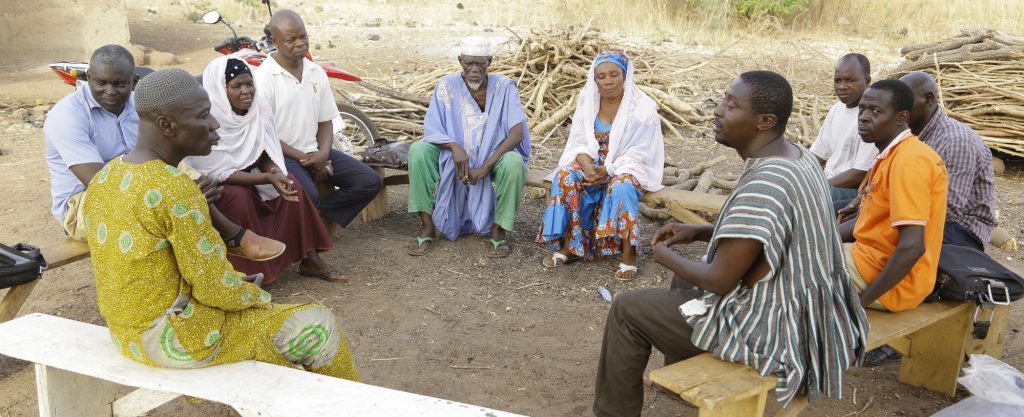GPSA projects
Improving Budget Accountability in Health and Education Sectors in the 50 Poorest Districts
Country: Ghana
Sector: Education, Public Administration, Health
Executing Agency: SEND GHANA
Grant Amount: $850,000
Closing Date: November 2018


Frame and Challenge
In the last decades, the Government of Ghana (GoG) has embarked on a renewed commitment to implement far-reaching decentralization reforms, as demonstrated by the enactment of the 1993 Local Governance Law and the 2010 Decentralization Policy Framework. The main objective behind these policies is to devolve decision-making to local authorities and to improve the accountability and effectiveness of basic service delivery. However, the newly delegated authority and resources acquired by decentralized institutions has raised serious concerns due to their weak financial accounting and reporting mechanisms, as well as their lack of robust social accountability channels.
In the context of health and education, decentralization processes and the efficient management of resources appear to be fraught with substantial challenges. Public systems do not deliver the services expected, disproportionately affecting poor households. The budget process lacks transparency and district assemblies do not have the necessary capacity to effectively formulate and execute budgets. These factors make it very difficult for citizens to monitor the funds and demand accountability.
Solution
SEND Ghana, an organization with extensive experience in monitoring funds in multiple sectors, has been granted a GPSA award to improve access and quality of public services by enhancing transparency and accountability in the use of public resources in the education and health sector in 30 districts.
This will be achieved by implementing three components that are geared towards:
- fostering an enabling environment for constructive engagement between government and civil society by establishing MOUs with relevant authorities and strengthening capacity of SEND Ghana’s PME (Participatory Monitoring and Evaluation) Network of CSOs to coordinate and implement social accountability tools;
- leveraging citizen feedback and improving CSOs capacity to monitor budget expenditure in the health and education sector; and
- collecting and curating knowledge to improve project design and leveraging media support disseminate lessons learned in a national and international scale.
Outcomes
Outcomes in the 30 covered districts included that:
- SMS, voice calls and web forms help to bring people’s concerns directly to authorities. Ministries of Health, Education, Finance and local Government actively support new citizen engagement.
- 7,612 citizens were made aware of their local and national budgets, and participated in budget preparation and implementation, while 535,000 were sensitized through radio campaigns.
- 90% of 350 District Citizens Monitoring Committees, including vulnerable citizens, are now versed in budget analysis. They practice influencing their local and national budgets for education, health and agriculture sector, and contribute to the Medium Term Development Plans (2018-2021) in their respective districts.
Lessons Learned
There are continued lessons to emerge from this project in Ghana, including but not limited to:
- The Grantee's mid-project decision to involve Ghana's Ministry of Finance in strengthening constructive citizens' government engagement afforded the important government group the opportunity to gather first-hand information from citizens and acknowle the emotions and passion that accompanied discussions, in order to generate ideas for the budget.
- An online platform proved a valuable tool when economic conditions rendered travel to citizen consultation locations difficult for participants. Broadening citizen participation in budget preparation and conversation should be ensured by wide-reaching platforms, when accessible, in future projects and in Project sustainability.
- The spill-over effect was proved by the Project, which initially targeted ordinary citizens who sought to advocate for service delivery in the health and education sectors. In part due to Project progress, many citizens and NGO's are interested in scaling up intervention to target the Agricultural sector.
project evaluation
This evaluation focuses on assessing the extent to which the Project has contributed to its intended outcomes. The findings show that the Project contributed to a considerable increase in citizen budget awareness and participation. There is also evidence of a great number of citizens’ priorities having been incorporated into the national budget. Finally, there is evidence of perceived improvements in health and education service provisions but this was not supported through a more rigorous quantitative analysis. Following on from this analysis, the subsequent assessment of the Project outcomes focuses on its collaborative approach to social accountability, particularly the formal collaboration with government that took place through a memorandum of understanding and a Project Steering Committee.
